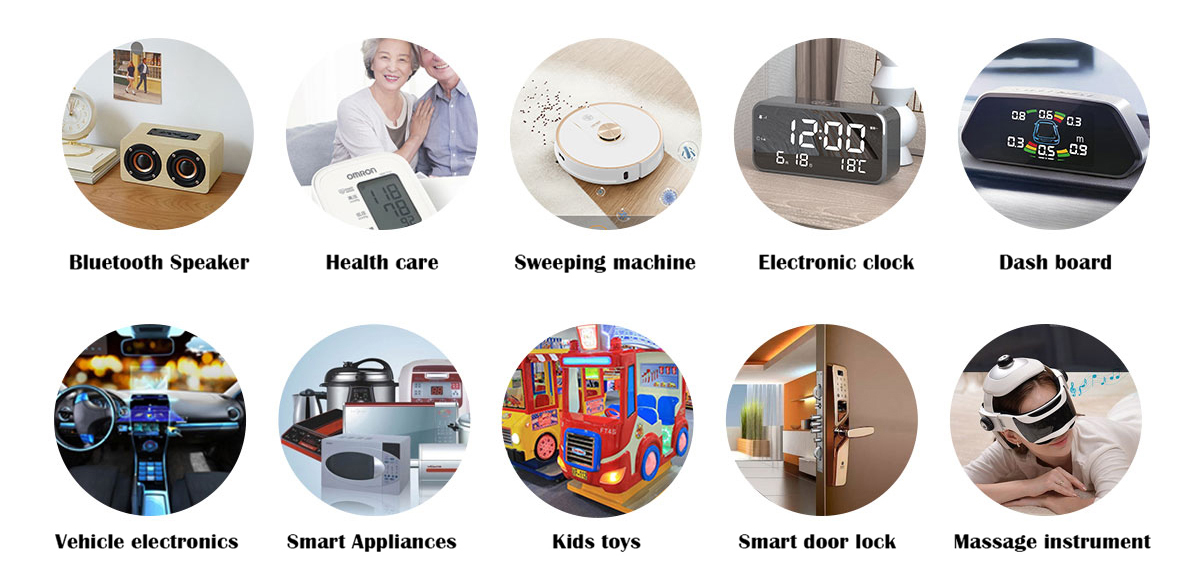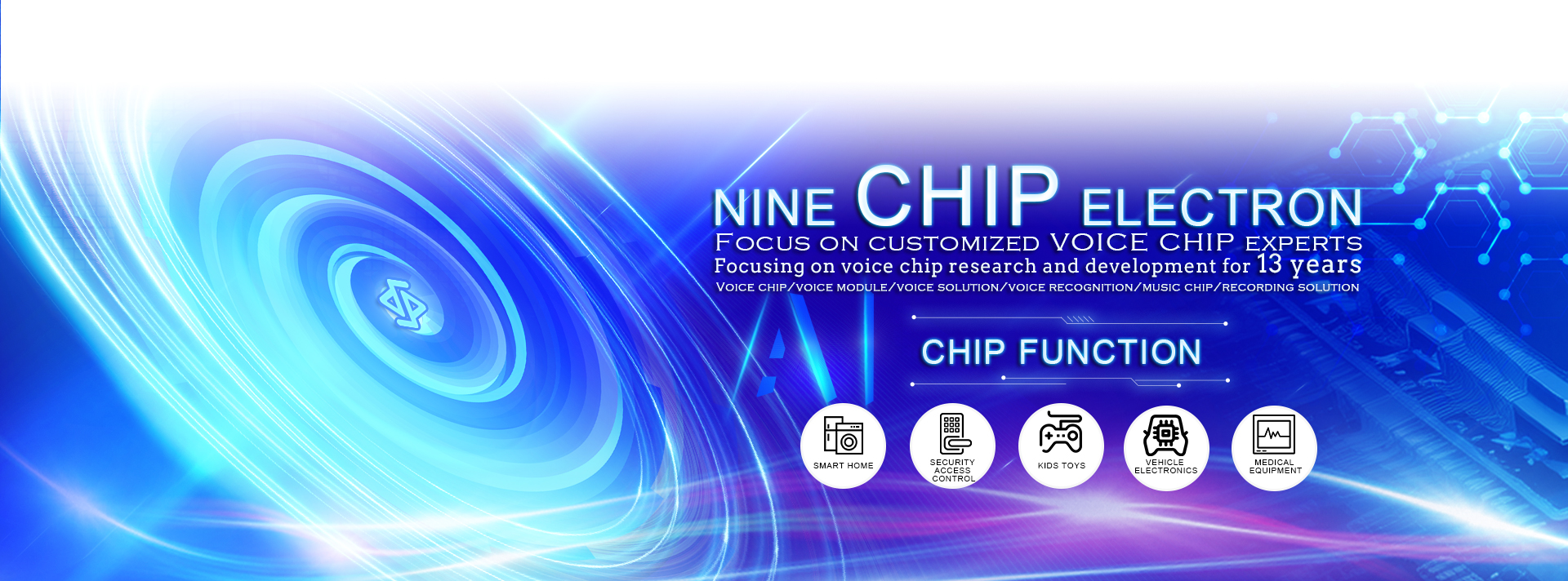

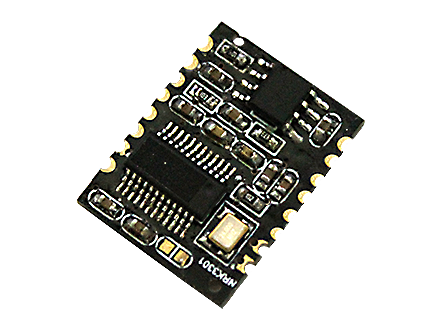

The NRK3301 voice recognition module is a module equipped with 32 -bit high -performance and low -cost voice recognition IC launched by Guangzhou Jiuxin Electronics. It has the advantages of accurate recognition and far -field noise reduction. It is now widely used in the fields of smart home appliances, smart bathrooms, smart lighting, smart mechanics, smart home, and smart toys.

Kernel and storage
★ High -performance 32 -bit RISC core, 240MHz main frequency, supporting hardware floating -point operations
★ Built -in 1MB SPI Flash
AI algorithm
★ Offline voice recognition, adopts the latest neural network (TDNN) algorithm, has the advantages of accurate recognition, low misjudgment rate, etc.
★ Speaking noise reduction algorithm: filtering off the steady state noise, and also have a good suppression effect on dynamic noise, and can be accurately identified under noise
★ Audio decoding:
★ Support MP3, WAV, WMA, APE, FLAC, AAC, MP4, M4A, AIF, AIFC audio decoding
★ BT supports SBC, AAC audio decoding audio
★ BT phone supports MSBC voice codec device
Audio
★ Two channels 16 -bit DAC, SNR> = 95DB
★ Single -channel 16 -bit ADC, SNR> = 90DB
★ The sampling rate supports 8KHz / 11.025kHz / 16kHz / 22.05kHz / 24KHz / 32kHz / 44.1kHz / 48kHz
★ Sanzhong stereo simulation MUX
★ DAC supports direct push push, single -end or differential output
power supply
★ VBAT is 2.2V to 5.5V
★ VDDIO is 2.2V to 3.6V
Bluetooth
★ Compliance with Bluetooth V5.1 + BR + EDR + BLE specification
★ Meet Class1 Class2 and Class3 transmission power consumption requirements
★ Support GFSK and π/ 4 DQPSK all packaging types
★ Provide+ 6DBM transmission power
★ A receiver with -90dbm sensitivity
★ Quick AGC can enhance the dynamic range
★ Support A2DP AVCTP AVDTP AVRCP HFP SPP SMP ATT GAP GATT RFCOMM SDP L2CA configuration file
Peripheral
★ A full -speed USB 2.0 OTG controller
★ A I2S digital audio interface, supports host and slave mode
★ Four multi -function 16 -bit timer, supports capture and PWM mode
★ Three 16 -bit PWM drive generators used for motors
★ Three full dual -work basic UART, UART0 and UART1 support DMA mode
★ Two SPI interfaces support host and device mode
★ A SD card host controller
★ A hardware IIC interface support host and slave mode
★ Built -in Cap Sense Key controller
★ 10 -bit ADC is used to simulate sampling
★ External awakening/interrupt on all GPIO
Packaging and working temperature
★ QSOP24
★ Work temperature: -40 ℃ to +85 ℃
★ Storage temperature: -65 ℃ to+ 150 ℃
Features
UART serial function introduction
NRK3301 voice recognition chip built -in standard UART asynchronous serial interface, the communication data format is: starting bit: 2 digits; FA; data bit: 2 digits; 00H ~ ffh; verification digit: 2 digits, the verification bit and the data bit are added to the data bit added For FFH. Use the computer serial port to determine the assistant, you need to set the parameters of the serial port correctly, and set the figure:
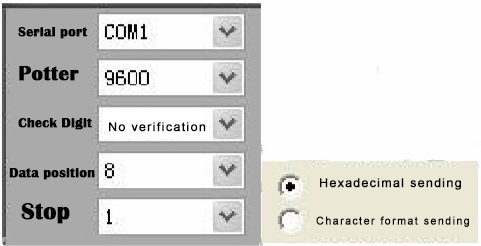
Play control introduction
Introduction to the entry: The entry refers to the entry of the standard version of the identification instructions we want to say & ldquo; Xiaoming & rdquo; as a wake -up word, we can identify other entries after waking up. For details, please refer to the table below:
You can set the entry:
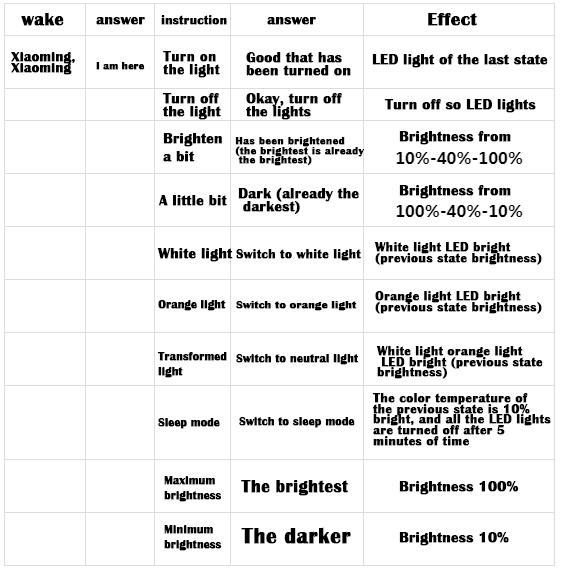
Note: 1. This version can be directly connected to PA10 without serial version chip PA10, PA11 directly connects the lights; you can also use the serial version PA6, PA7 to directly output serial signal 2. Standard version entry for testing. If you want to modify the entry, please contact the business, please contact the business Personnel 3. UART port can be used with a single -chip microcomputer. 4. The delay time is 10 seconds after the wake -up. After receiving the instructions, re -count the time.
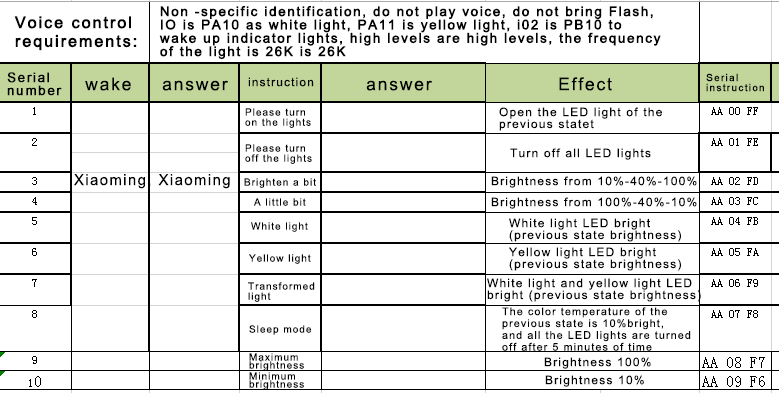

NRK3301 offline voice recognition module can be suitable for occasions where various voice prompts, such as: blood pressure meter, attendance machine, blood glucose meter, medical device, massage device, foot bath, doorbell tip Home appliances, Buddhist machines, gaming machines, craft gifts, smart locks (fingerprint locks, password locks, card locks), codes scanning machines, and so on.
